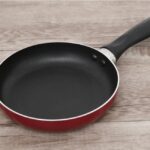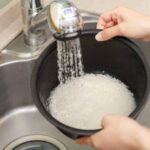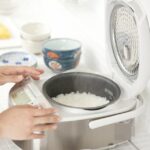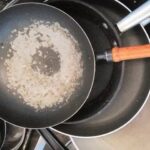Teflon, a highly durable and long-lasting organic material, is used to create non-stick coatings. However, no matter how good the coating is, it cannot withstand prolonged use and abrasion.
Concerned about the potential health implications, some people immediately replace their rice cooker pots. Others, however, believe that this is unnecessary and continue to use the flaked pot, considering it a waste to replace it.
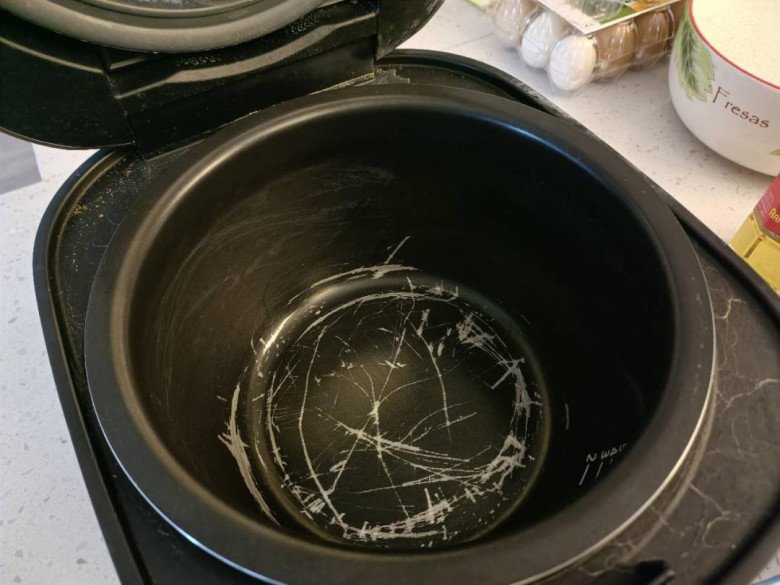
Is it harmful to use a rice cooker pot with a flaked non-stick coating?
Teflon coatings start to degrade when heated between 230 and 260 degrees Celsius, and they decompose at temperatures above 350 degrees Celsius. A study by Newcastle University and Flinders University (Australia) found that a small scratch on the non-stick coating can release approximately 9,100 plastic particles during cooking. If the coating is damaged with a size of a few millimeters or larger, it can release 2.3 million microplastics and nanoplastics, which can potentially contaminate food.
When a rice cooker pot is scratched, the Teflon coating can flake off and mix with the rice. Fortunately, rice cookers have a maximum temperature of 100 degrees Celsius, and the cooker will either shut off or keep the food warm if this temperature is exceeded. This means that during cooking, the Teflon will not decompose, and if ingested, it will be inert and not react with body cells but will be excreted through digestion.
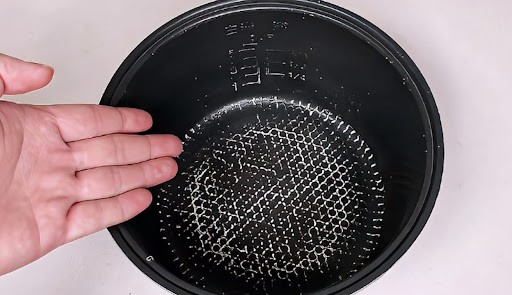
Therefore, if your rice cooker pot has minor flaking and is of good quality and genuine brand, you can continue to use it. However, it is recommended to gently fluff and clean the pot to prevent further flaking. If your rice cooker is of unknown origin and low quality, even minor flaking can be a health risk, and you should replace the pot immediately.
With severe flaking, the rice may not cook properly, stick to the pot, and burn. In this case, it is advisable to replace the rice cooker pot.
Using the rice cooker pot for purposes other than cooking rice can be the most harmful. Specifically, it is not advisable to use the pot for frying or cooking at high temperatures, as this can lead to significant Teflon decomposition. It is especially dangerous to use the rice cooker pot to heat acidic foods, as they can corrode the metal.
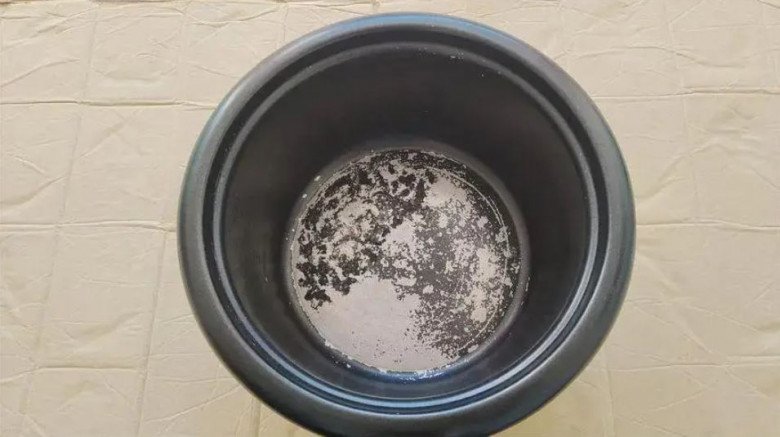
How to properly use and maintain your rice cooker for longevity and safety
To extend the lifespan of your rice cooker, consider the following guidelines:
– Regular and gentle cleaning
It is best to clean the rice cooker pot immediately after each use, as bacteria and unpleasant odors can develop over time, especially during the hot summer months. In addition to cleaning the pot, remember to regularly clean the exterior, heating plate, lid, and water collection tray to maintain hygiene and prolong the life of your appliance.
– Dry the exterior of the pot before cooking
Use a clean cloth to dry the outside of the pot before placing it inside the rice cooker. This prevents water from accumulating and evaporating, which can cause burns and discoloration to the pot’s exterior and affect the heating plate’s longevity.
– Use both hands when placing the pot inside the cooker
Always use both hands to handle the pot and gently rotate it once placed inside to ensure even contact with the relay. This will prevent damage to the relay and ensure even cooking.
– Do not use the rice cooker pot on other types of stoves
The rice cooker pot should only be used inside the rice cooker. Do not use it on gas stoves, induction cooktops, or other types of stoves, as this can deform the pot and reduce its lifespan.
























